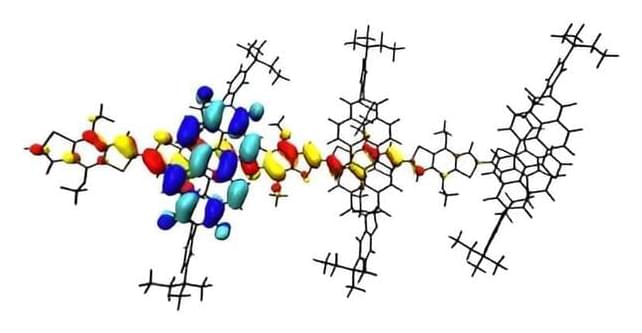In a paper published in Nature Chemistry, researchers from the University of Cambridge, Imperial College London and Queen Mary University of London have shown for the first time how different arrangements of molecules in organic solar cells can improve light absorption, leading the way to better and cheaper solar panels.
Organic solar cells use small organic molecules or organic polymers to absorb and transform sunlight into electricity. The molecules can be produced synthetically at high throughput, and the resulting cells are lightweight, flexible and inexpensive to make. This makes them potentially cheaper, sustainable and more flexible than traditional cells made of silicon.
When light hits an organic solar cell, it forces the molecules to transfer electrons, which generates an electrical current. The efficiency of the process depends on the arrangement of the molecules and how well they interact.
